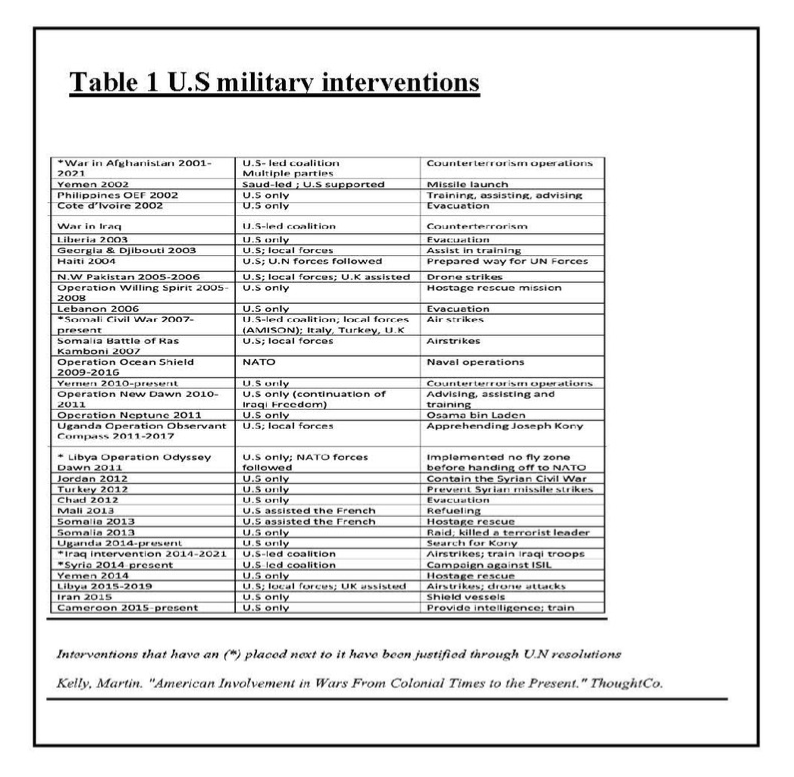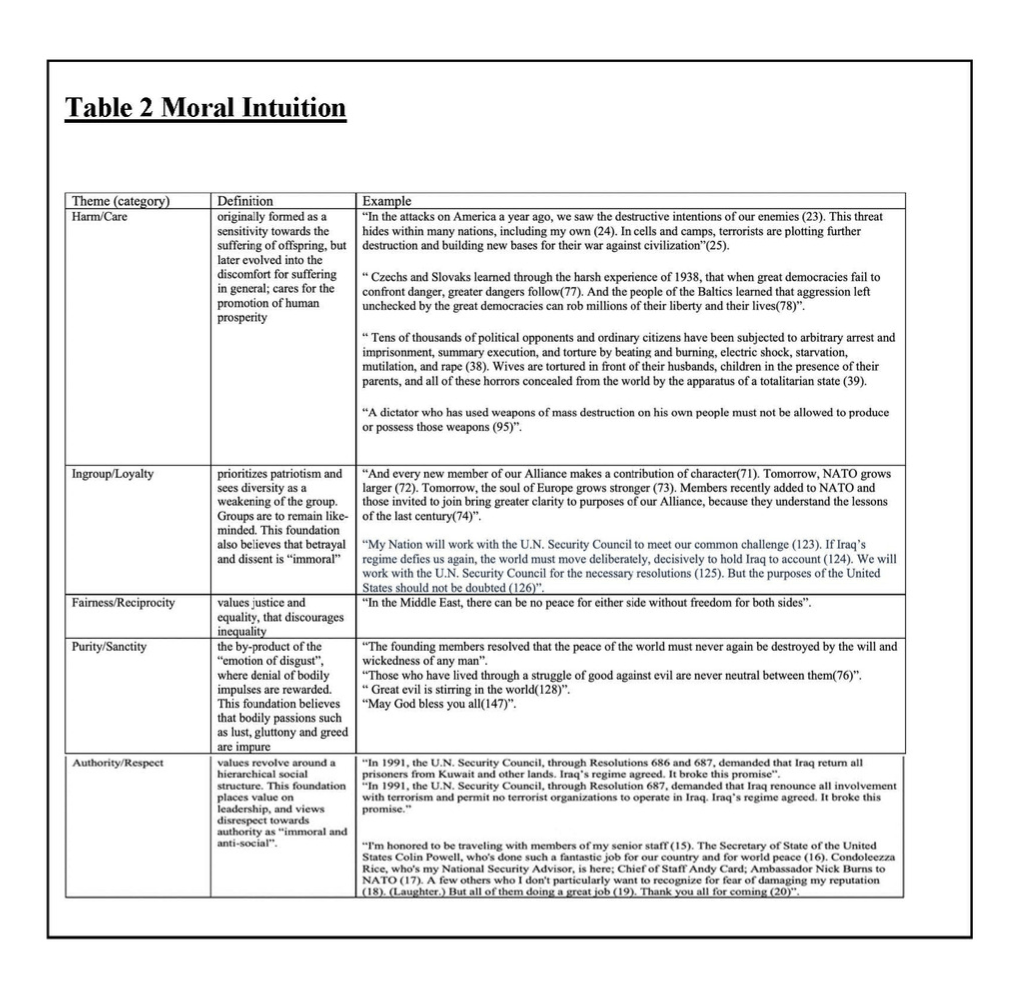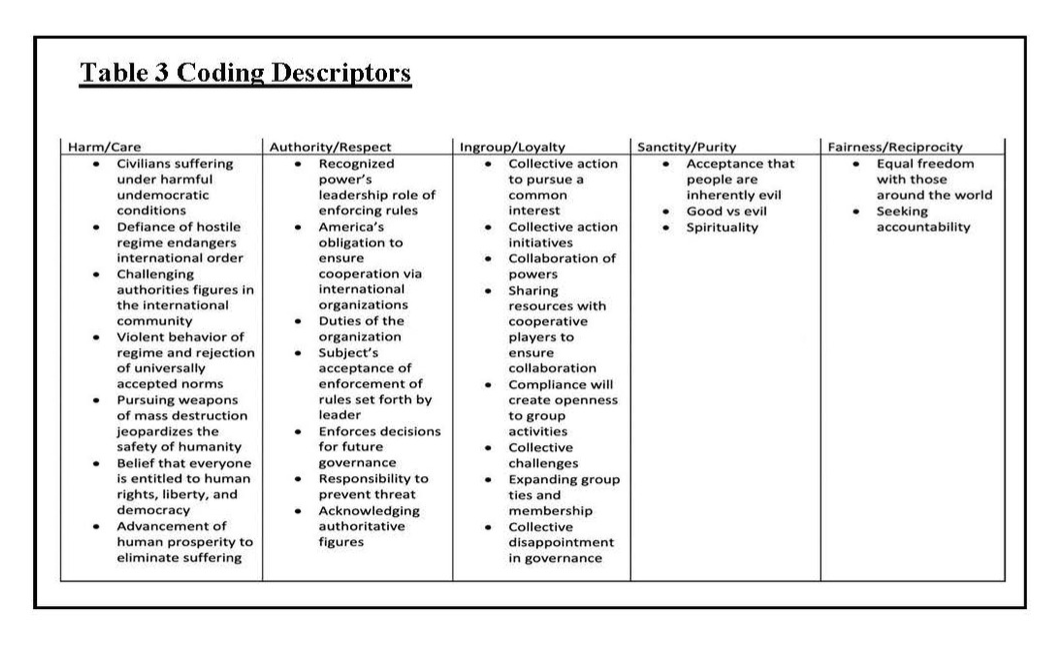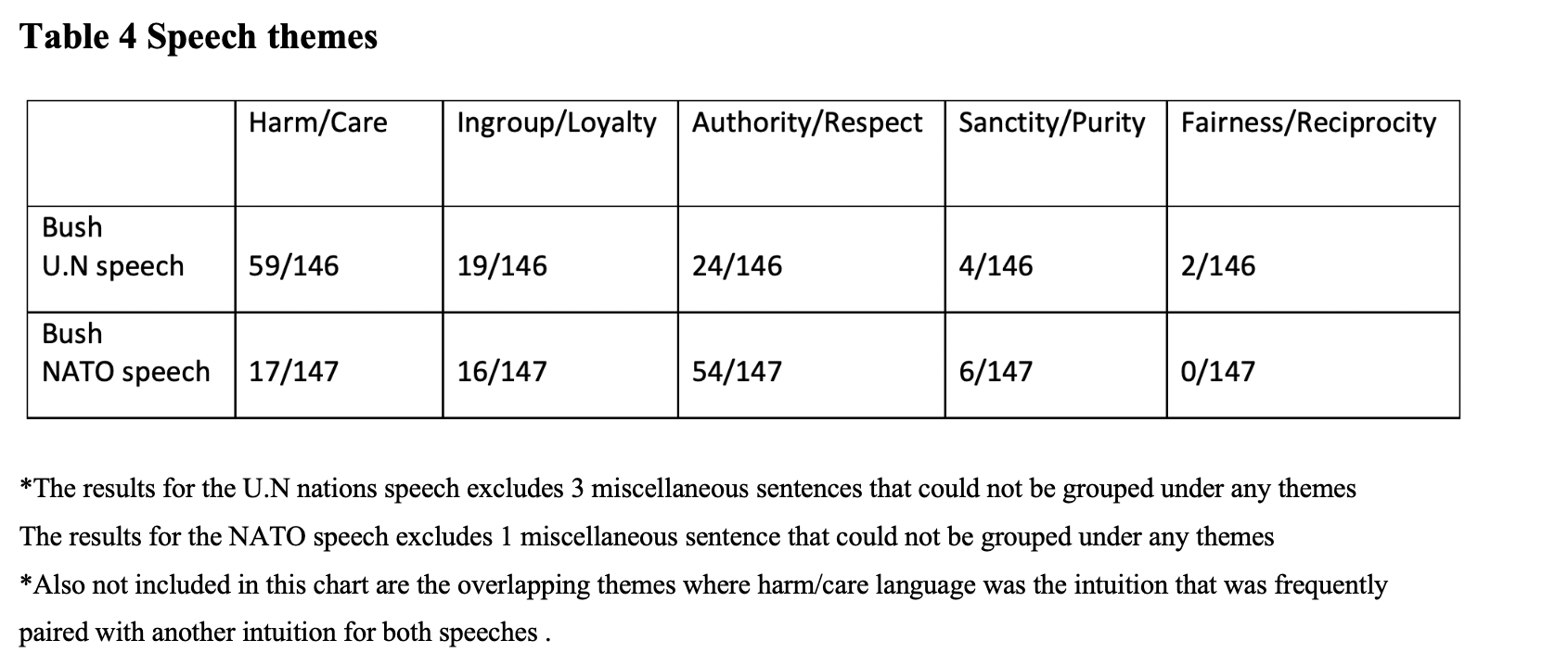Understanding the Impact of Presidential Rhetoric on Coalition Building
By Jordyn Gillard
Editor's note: The following is an excerpt from the author's Master's thesis
Introduction
How does the president use rhetorical framing to promote military coalitions? Of course there are other influential state actors that represent the country internationally, but the President of the United States is the most recognizable figure in international politics. Presidential rhetoric revolves around the study of political communication style used to gather public support for the president’s policies. Presidential rhetoric employs both verbal and visual rhetorical strategies to persuade audiences. Given that there are other sovereign state actors within the international community, the president must use universally accepted language to advance U.S interests. Indeed, there are several examples that show the president using the values of moral intuition to help strengthen their argument that nations should collaborate with the United States because of shared interests.
Theoretical Framework
According to the academic literature, coalition building most often depends on legitimacy, political incentives, proximity, and shared culture. However, presidential rhetoric appears to be one of the most influential conditions when seeking to form a coalition in the absence of legitimacy, incentives, proximity, and shared culture. The U.S president can strengthen his rhetoric and enhance the appeal by incorporating principles of moral foundations theory into their argument. According to this theory, there are five universally accepted values that explain moral reasoning.
The theory, introduced by researchers Jesse Graham, Brian Nosek, and Jonathan Haidt, identified the five best universally accepted moral institutions: Harm/Care, Fairness/Reciprocity, Ingroup/Loyalty, Authority/Respect, and Purity/Sanctity.
Rhetoric plays an important role in international coalition building, and presidential rhetoric has the ability to shape the narrative and influence the situation. For example, audiences are more likely to act when there is a humanitarian crisis unfolding. Indeed, narrative framing is an important tool used by many political leaders to generate support for their initiatives. Winning the hearts and minds of a diverse set of international actors is needed in order to advance U.S foreign policy objectives. This is not to say that the existing theories are not influential in coalition building, but when analyzing how coalitions are formed, it would be a mistake to exclude presidential rhetoric from the discussion.
Case Selection
Table 1 contains a list of U.S military interventions from 2001 to 2015. Using presidential rhetoric as a criteria for coalition building, a content analysis was conducted of two presidential speeches. The goal was to isolate the other variables to see how presidential rhetoric would stand on its own. Applying the theory to the example of the 2003 invasion of Iraq, lead to the conclusion that this coalition should have never been built. And yet it was. How did it happen? This study examines whether presidential rhetoric aided President Bush in his campaign to establish an international military coalition.

Hypothesis: The more harm/care language in a presidential speech, the more likely the United States is to successfully form a military coalition.
The United Nations is accepted as the primary organization that grants legitimacy to the formation of an international military coalition. The selection of the United Nations was also made based on its size as the largest international organization, its endurance through many decades and the ideological diversity of its members. In the case of President Bush’s second speech – at NATO -- it is one of the leading international military organizations in the world, and has the right to carry out military operations in NATO states. When speaking at the U.N and NATO, the U.S president has to make compelling arguments that draw from universally accepted moral intuitions to maintain or establish a large coalition. The rhetorical techniques employed by the president in pursuit of a specific foreign policy goal, forms the basis of this analysis. Moral intuitions, along with examples from both transcripts of the two presidential speeches can be viewed in Table 2. In order to evaluate the speech transcripts, code descriptors -- the compilation of information that describes the data -- were created to analyze the language patterns. As listed in table 3, the coding criteria was formed after finding common traits among the descriptors.
In order to evaluate the speech transcripts, code descriptors -- the compilation of information that describes the data -- were created to analyze the language patterns. As listed in table 3, the coding criteria was formed after finding common traits among the descriptors.

Results
The themes used in both speeches are shown in table 4. In Bush’s address to the United Nations General Assembly we see that he employed language relating to harm/care values, while in his NATO speech we see he used authority/respect language more frequently.

United Nations
In President Bush’s speech, harm/care language accounted for 40% of the sentences in the transcript. When the president uses language that suggests there is suffering and human rights violations overseas, they are more likely to get a response from the international community supporting intervention. Bush’s use of this theme was associated with the looming threat that undemocratic nations pose to the governance of the United Nations. The theme is connected to the consequences a population will face when they are not ruled by a democratic government. In his speech Bush states, “Wives are tortured in front of their husbands, children in the presence of their parents, and all of these horrors concealed from the world by the apparatus of a totalitarian state.”
President Bush associated authority/respect language with legitimizing the ruling and decision-making process of the United Nations. This theme had the second highest level of frequency. Bush referred to the United Nations as an entity responsible for reinforcing rules. This was commonly used to describe the responsibilities of the organization and the steps it must take to ensure acceptance of their rules. Statements such as, “The Security Council resolutions will be enforced, the just demands of peace and security will be met, or action will be unavoidable. And a regime that has lost its legitimacy will also lose its power,” restates Bush’s attempt to form a coalition through the use of authority/respect language as a means to establishing assigned leadership roles and duties.
The third theme with the highest frequency is ingroup/loyalty. Bush associates this theme with collectivism and diplomacy. In Bush’s speech there are no openings for individualistic approaches nor working independently from the governing body. The collaboration between the United Nations and its member states requires the sharing of resources and viewpoints to achieve the same goal.
NATO
Unlike in his U.N speech, President Bush opted for more authority/respect language when addressing members of NATO. Bush’s use of authority/respect was mainly used when elaborating on the duties and responsibilities of the members. Authority/respect language was also used to acknowledge authoritative figures and deciding the course of action that needed to be taken to handle the situation in Iraq. The primary focus for Bush was to discuss the obligation that each state had in maintaining the international order and cooperation is needed to advance shared interests.
Ingroup/loyalty was the second highest moral intuition used during Bush’s NATO speech. In a similar style to his United Nations speech, President Bush often referred to group collaborations in order to advance U.S interests disguised as collective interests. Bush states, “If Iraq’s regime defies us again, the world must move deliberately, decisively to hold Iraq to account. We will work with the U.N. Security Council for the necessary resolutions. But the purposes of the United States should not be doubted. President Bush often speaks as though all of the members are one, and have been experiencing the same feelings of uneasiness.
Harm/care was the third moral intuition that was frequently used. Bush uses harm/care language to associate democratic values with a better world. For Bush this language means that in order to advance human prosperity there needs to be an end to harsh dictatorships and human suffering. Democratic values should be a collective interest for all parties involved to make the world better.
Findings
The language used in each speech, reflects the organizations. The U.N. is responsible for maintaining peace and stability, and is most often focused on humanitarian goals, whereas NATO focuses on maintaining stability through military might and political strength. It is reasonable for Bush to have used more authority/respect language here as opposed at the U.N. and vice versa for harm/care.
However, the two least referenced intuitions were fairness/reciprocity and purity/sanctity and I have two theories why this could be. In a room full of diverse actors who have different religious beliefs and ideologies using language that reflects religious principles would not be beneficial in aiding coalition building. Also, in a room full of North/South inequalities speaking about fairness/reciprocity would seem hypocritical and would not be advantageous in building a military coalition.
Conclusion
My research finds that moral intuitions can exemplify how American presidents are able to effectively push the idea of shared interests, to form a military coalition. As well, this analysis shows the frequency of moral intuitions varies depending on the organization. The president is more likely to use harm/care language when addressing the United Nations, while he is more likely to use authority/respect when addressing NATO members. The reason is because the purpose of each organization -- the United Nations prioritizes stability and aims to avoid conflict, while NATO is mainly for military and political use.
Reaching across cultures requires employing universally accepted language that appeals to everyone. The three major intuitions employed to build international coalitions were harm/care, ingroup/loyalty, and authority/respect. However, the usage of the intuition varies across organizations. Further studies could examine how the president addresses other international organizations.
